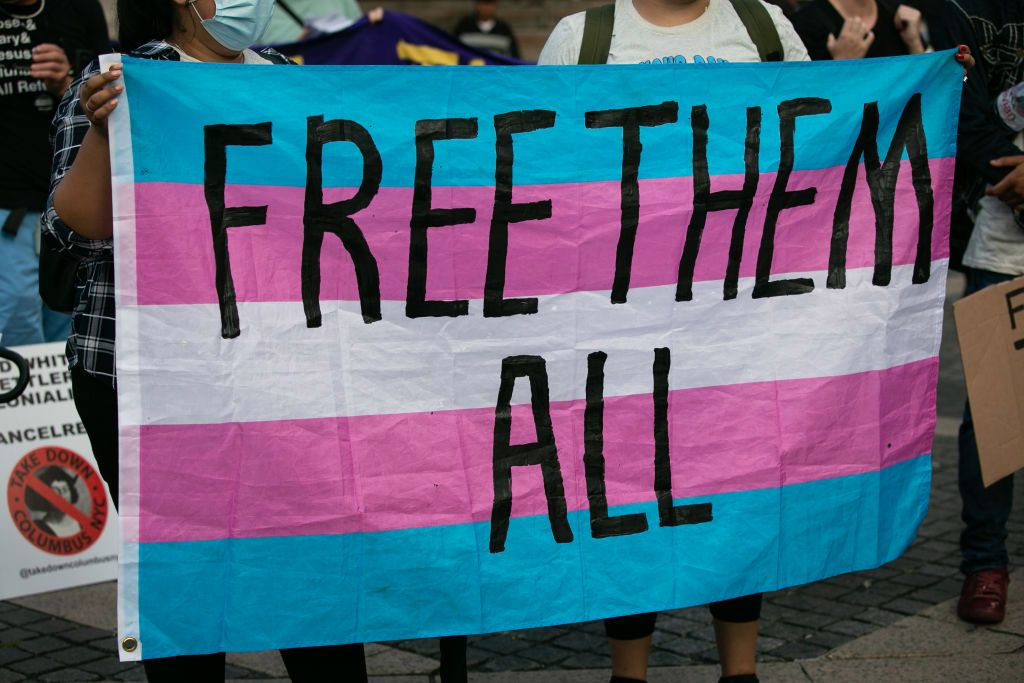‘We Do This ‘Till We Free Us’: Book About Prison Abolition Lands In The New York Times Top 10 List

Source: NurPhoto / Getty
The newest book from abolitionist, author and organizer Mariame Kaba entered the top 10 of the New York Times Best Sellers list in its first week. Based on sales ending the week of Feb. 27, Kaba’s “We Do This ‘Till We Free Us: Abolitionist Organizing and Transforming Justice” ranked as a top paperback non-fiction book.
Congratulations, @prisonculture!
WE DO THIS ’TIL WE FREE US is officially a New York Times Bestseller in its first week of publication. pic.twitter.com/osB9peQ68z
— Haymarket Books (@haymarketbooks) March 5, 2021
The new book is part of Haymarket’s Abolitionist Papers series, “We Do This ‘Till We Free Us,” and offers lessons, reflections and explores abolishing the prison industrial complex (PIC) as an attainable goal.
In an interview with Char Adams for NBC News, Kaba said the book has two target audiences.
“One is people who might not know a lot about PIC abolition and are looking for a way to enter the discussion,” Kaba said. “The second are current abolitionist organizers who are running abolitionist campaigns.”
Everyone should read @prisonculture Mariame Kaba’s new book. It is full of lessons, inspiration, insights and provocations…https://t.co/od8GHG07qA
— Barbara Ransby (@BarbaraRansby) February 24, 2021
A carefully curated collection of essays, interviews and reflections, “We Do This ‘Till We Free Us” provides readers with a guidepost for navigating the landscape of abolition. The opening entry of Kaba’s October 2020 article, “So You’re Thinking About Becoming an Abolitionist,” explains that it is about building and creating.
“PIC abolition is a positive project that focuses, in part, on building a society where it is possible to address harm without relying on structural forms of oppression or the violent systems that increase it,” writes Kaba.
The abolitionist organization Critical Resistance defines PIC abolition as “a political vision with the goal of eliminating imprisonment, policing, and surveillance and creating lasting alternatives to punishment and imprisonment.”
My copy of We Do This ‘Til We Free Us by Mariame Kaba (aka @prisonculture) arrived from @PilsenCommBooks today. Excited for the weekend and some time to settle into these words and thoughts. A better world is possible! pic.twitter.com/x7YluELGR5
— Deborah Rose (@debrosereeves) March 4, 2021
While interest in abolition has increased over the past few years, the uprisings of last summer along with the call to defund the police put the issue front and center in a major way. Through her writings and conversations, Kaba grapples with the challenging questions people have about PIC abolition and steps to take on the way to full abolition.
In 2018’s “A Jailbreak of the Imagination: Seeing Prisons for What They Are and Demanding Transformation,” Kaba, along with writer Kelly Hayes, engages readers in a challenging exercise of what it means to radically reimagine how to address harms.
Leading with the story of 27-year-old Tiffany Rusher, Kaba and Hayes argue that the awareness and discussion of the horrors within the system of incarceration require Americans to stop looking away and be present.
Through her decades of experience, Kaba has centered community and collaborative organizing over changing hearts and minds. Kaba’s history and work speak for themselves but are also a lesson on how abolition is possible.
Tonight @prisonculture will be giving a presentation on the “Criminalizing Survival Curricula,” made in conjunction with @survivepunish! If you didn’t have a chance to register, you’ll be able to find materials from the session here – https://t.co/6nVJuLDtX5
— Project NIA (@projectnia) February 25, 2021
As founder and director of Project NIA, Kaba has partnered with grassroots organizations and activists to address juvenile justice issues, build youth leadership skills and influence policy. Her imprint can be seen across countless organizations in Chicago.
A free reading and discussion guide accompanies the book.
Anoa Changa is a movement journalist and retired attorney based in Atlanta. Follow Anoa on Instagram and Twitter @thewaywithanoa.
SEE ALSO:
California Nonprofit Combats Recidivism Through Tech
Meek Mill, Reform Alliance Leaders Give Back To Children Impacted By Incarceration
[ione_media_gallery id=”3901951″ overlay=”true”]


